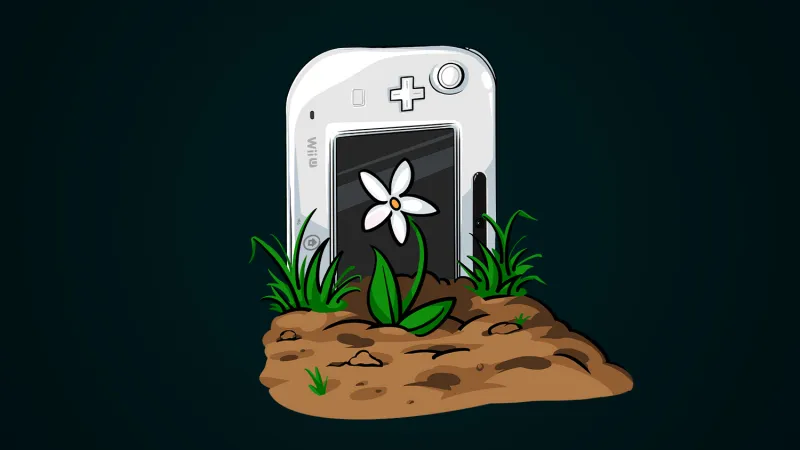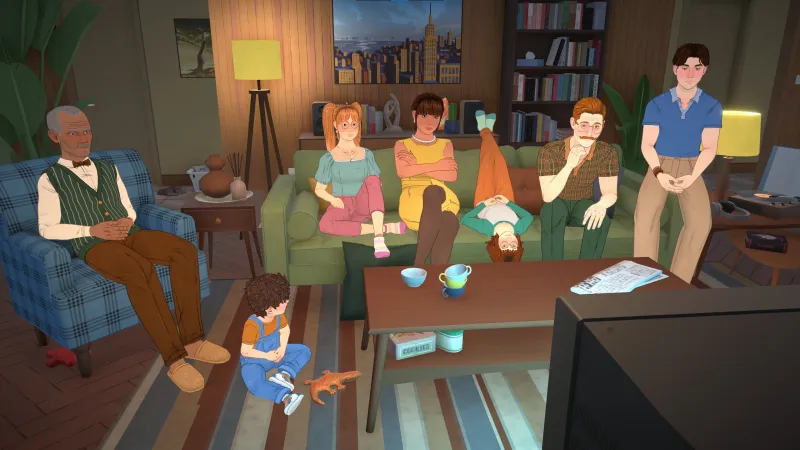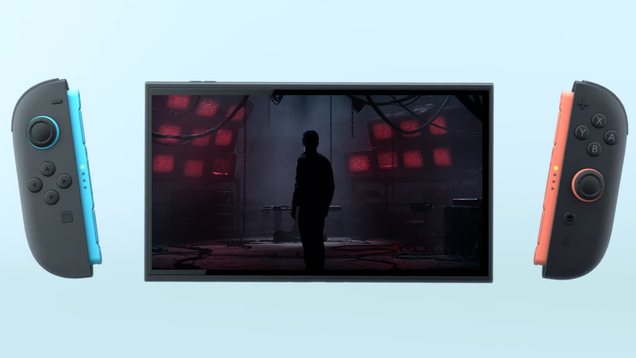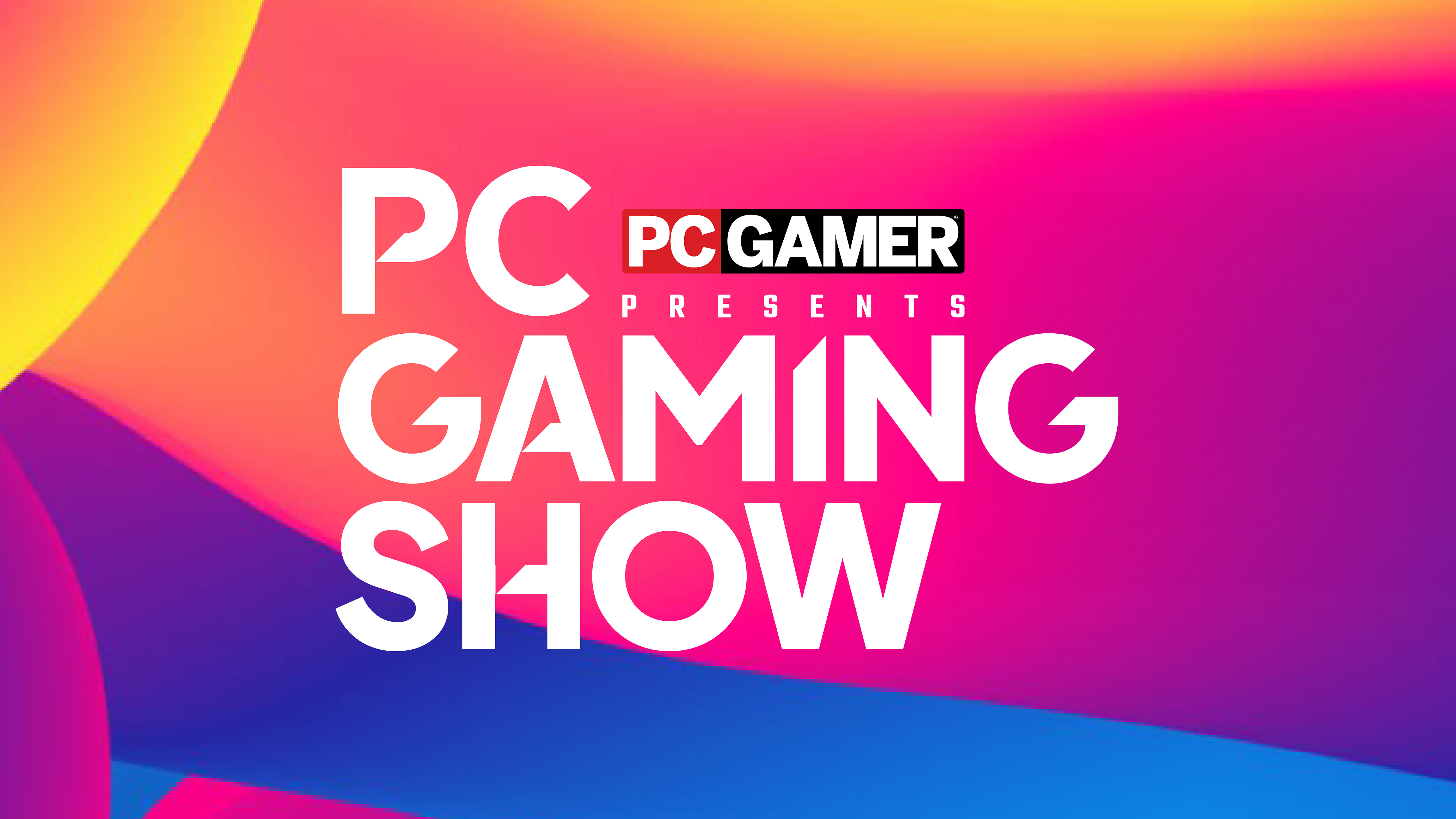
December 25, 2013, was the day I finally got my hands on a Wii U. It was a special edition that came with a code for Wind Waker HD and a gamepad emblazoned with a golden Triforce. For my brother and I, 11 and 13 at the time, respectively, this was a massive deal; we’d spent the last year seeing Wii Us at friends’ houses, yearning for our own, and struggling to explain the difference between it and our current Wii to our parents. But while it was valuable to us, the Wii U struggled to sell and has ultimately gone down as one of Nintendo’s most disappointing consoles. Today, the system’s eShop shuts down forever, permanently closing a chapter of Nintendo’s history. I’ll be the first to admit that the rosy lenses of nostalgia heavily tint my memory of the Wii U. It was a formative time in my gaming life; Mario Kart 8 and Super Smash Bros. for Wii U were the centerpieces of many social gatherings. That said, I think some defense of the Wii U is still warranted. Gamer culture has been so quick to forget the worst parts of the console that the best parts have also been lost in the mix. As much as I love my Switch, there are a lot of lessons it could learn from its older, clumsier brother, especially when it comes to the eShop. The Wii U had character. On startup, Miis linked to profiles posed and danced. On the home screen, floaty synth pads and bells played arpeggios and echoing harmonies. Miis stood in huddles by (now defunct) Miiverse icons, chatting about their respective games. You could even rotate those icons around, causing the Miis underneath to scramble across to their assigned games. Functionally, that rotation serves no purpose, but that’s not the point: it’s all about a fun, inviting atmosphere. The vibe continued in the eShop. Even the loading screen is a minigame where your console’s software icons become a puzzle you have to piece together. Once you’re in, you can listen to a whole lineup of bouncy bossa bops while you browse. The music in these menus never reached the iconic status of the Wii’s Mii Channel or Wii Shop Channel, but the influence is clear. It’s an energetic, childlike aura that feels distinctly Nintendo. By comparison, the Switch’s menus are bland. There’s no music anywhere, and while the “themes” section in the settings seemed to imply a return of the 3DS’ visual themes, six years later our only options are still “black” and “white.” It’s much less charming, something I considered essential to a Nintendo product before its release. While I’ll certainly miss the Wii U eShop’s fantastic vibes, the real despair I feel is from losing access to its games library. The Wii U’s two-screen setup allows it to run a ton of virtual console games, and to people used to buying these games on the secondhand market, the prices were shockingly affordable. All Game Boy Advance games were under $10, and Metroid Prime Trilogy, which can easily go for over $100 on eBay, was only $20. It was also the only place you could digitally buy DS games, like Pokémon Ranger and Kirby: Squeak Squad. Older Nintendo fans likely see this as an opportunity to revisit games from their past, but for someone my age, it’s how I experienced many of Nintendo’s classics. Paper Mario, Earthbound, Ocarina of Time, Majora’s Mask, and Super Mario 64 are all games I would never have experienced without the eShop’s virtual console. In theory, those games exist on the Switch, but because they’re locked behind Nintendo Switch Online’s classics library, you lose access if your subscription ends. You do not own them, and this has always made me uncomfortable. One day, like the Wii U, Nintendo will shut down the Switch’s online features. It’s unclear what happens to the classics library when that happens. While the Wii U’s eShop might be shutting down, I can at least find comfort in the fact that I own the classics I bought, and I always will. My brother Andre (left) and I (right), the day we got our Wii U. There are many things the Switch does better than the Wii U; at the end of the day, it’s certainly the better console. But the Wii U was a valuable window to Nintendo’s past, both with its charm and its virtual console, and the closing of its eShop is the final nail in its coffin. Nintendo is removing something it doesn’t have a real replacement for. I understand that the Wii U wasn’t the console for everyone, but it was the console for me. And while some people are unbothered by the ending of its final chapter, laughing at its clunky design and mocking the gamepad, I don’t mind. At the end of the day, it’ll always be my childhood Christmas treasure – and for now, the only console that can play Wind Waker HD.
December 25, 2013, was the day I finally got my hands on a Wii U. It was a special edition that came with a code for Wind Waker HD and a gamepad emblazoned with a golden Triforce. For my brother and I, 11 and 13 at the time, respectively, this was a massive deal; we’d spent the last year seeing Wii Us at friends’ houses, yearning for our own, and struggling to explain the difference between it and our current Wii to our parents.
But while it was valuable to us, the Wii U struggled to sell and has ultimately gone down as one of Nintendo’s most disappointing consoles. Today, the system’s eShop shuts down forever, permanently closing a chapter of Nintendo’s history.
I’ll be the first to admit that the rosy lenses of nostalgia heavily tint my memory of the Wii U. It was a formative time in my gaming life; Mario Kart 8 and Super Smash Bros. for Wii U were the centerpieces of many social gatherings. That said, I think some defense of the Wii U is still warranted. Gamer culture has been so quick to forget the worst parts of the console that the best parts have also been lost in the mix. As much as I love my Switch, there are a lot of lessons it could learn from its older, clumsier brother, especially when it comes to the eShop.
The Wii U had character. On startup, Miis linked to profiles posed and danced. On the home screen, floaty synth pads and bells played arpeggios and echoing harmonies. Miis stood in huddles by (now defunct) Miiverse icons, chatting about their respective games. You could even rotate those icons around, causing the Miis underneath to scramble across to their assigned games. Functionally, that rotation serves no purpose, but that’s not the point: it’s all about a fun, inviting atmosphere.
The vibe continued in the eShop. Even the loading screen is a minigame where your console’s software icons become a puzzle you have to piece together. Once you’re in, you can listen to a whole lineup of bouncy bossa bops while you browse. The music in these menus never reached the iconic status of the Wii’s Mii Channel or Wii Shop Channel, but the influence is clear. It’s an energetic, childlike aura that feels distinctly Nintendo.
By comparison, the Switch’s menus are bland. There’s no music anywhere, and while the “themes” section in the settings seemed to imply a return of the 3DS’ visual themes, six years later our only options are still “black” and “white.” It’s much less charming, something I considered essential to a Nintendo product before its release.
While I’ll certainly miss the Wii U eShop’s fantastic vibes, the real despair I feel is from losing access to its games library. The Wii U’s two-screen setup allows it to run a ton of virtual console games, and to people used to buying these games on the secondhand market, the prices were shockingly affordable. All Game Boy Advance games were under $10, and Metroid Prime Trilogy, which can easily go for over $100 on eBay, was only $20. It was also the only place you could digitally buy DS games, like Pokémon Ranger and Kirby: Squeak Squad.
Older Nintendo fans likely see this as an opportunity to revisit games from their past, but for someone my age, it’s how I experienced many of Nintendo’s classics. Paper Mario, Earthbound, Ocarina of Time, Majora’s Mask, and Super Mario 64 are all games I would never have experienced without the eShop’s virtual console.
In theory, those games exist on the Switch, but because they’re locked behind Nintendo Switch Online’s classics library, you lose access if your subscription ends. You do not own them, and this has always made me uncomfortable. One day, like the Wii U, Nintendo will shut down the Switch’s online features. It’s unclear what happens to the classics library when that happens. While the Wii U’s eShop might be shutting down, I can at least find comfort in the fact that I own the classics I bought, and I always will.
My brother Andre (left) and I (right), the day we got our Wii U.
There are many things the Switch does better than the Wii U; at the end of the day, it’s certainly the better console. But the Wii U was a valuable window to Nintendo’s past, both with its charm and its virtual console, and the closing of its eShop is the final nail in its coffin. Nintendo is removing something it doesn’t have a real replacement for. I understand that the Wii U wasn’t the console for everyone, but it was the console for me. And while some people are unbothered by the ending of its final chapter, laughing at its clunky design and mocking the gamepad, I don’t mind. At the end of the day, it’ll always be my childhood Christmas treasure – and for now, the only console that can play Wind Waker HD.





